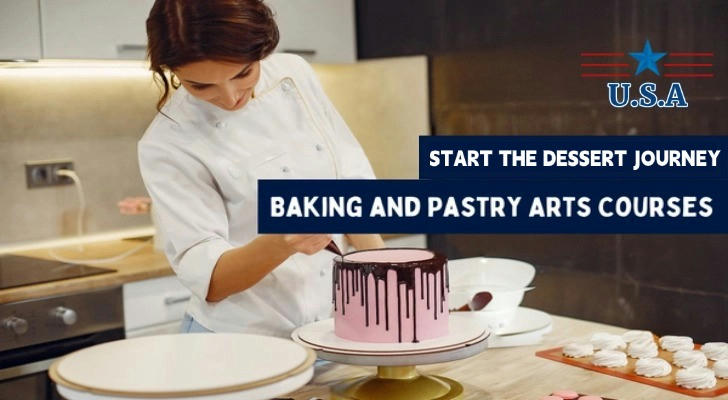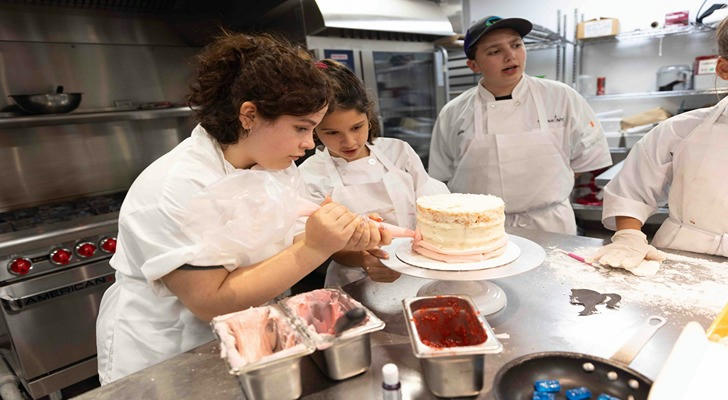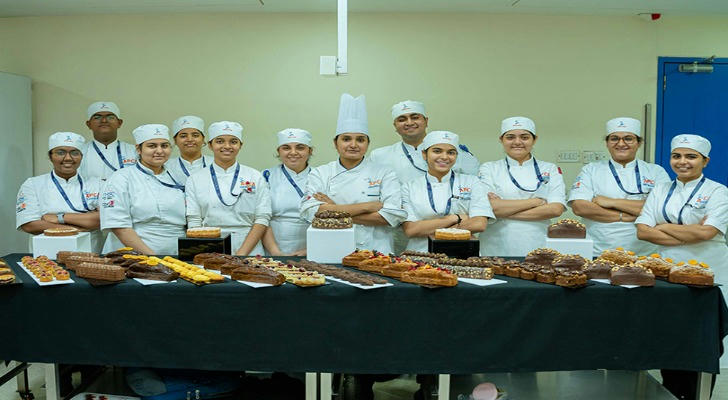From the kitchen to a sideline: Baking the future with your hands, desserts can also become a career
In the United States, desserts are not only a way of enjoying life, but are also becoming a popular career choice. Statistics show that the baking industry creates more than 3.5 million related jobs each year, and pastry courses are becoming the starting point for professional and flexible work.

Ⅰ. What is a pastry course?
Pastry courses are skill courses with dessert making and practical training as the core, and widely serve people from zero-based enthusiasts to career transitioners. Typical content includes:
Baking Basics: Production process of cakes, bread, biscuits, and tarts
Decoration Techniques: Such as decorating, fondant, mousse, chocolate modeling, etc.
Food Safety and Kitchen Management: Standardize kitchen operations and strengthen hygiene awareness
Menu Design and Raw Material Cost Control: Lay the foundation for actual operations
Project Training: Simulate commercial kitchen operation processes and accumulate experience
Ⅱ. Who is learning? Who is this course suitable for?
According to the training data of the American Association of Professional Education (ACTE) in recent years, pastry courses are particularly popular among the following groups of people:
🎂 Dessert lovers, young people and adults who want to move from hobbies to professionals
👩🍳 Working people who want to master skills and re-plan their careers
👨🎓 Junior high school graduates, fresh graduates looking for quick employment courses
👩👧👦 Full-time parents with flexible time but lack of technical thresholds
🧁 Startups who are preparing to develop side businesses or family dessert businesses

Ⅲ. Course highlights: Not just as simple as "learning to make cakes"
| Module | Content examples |
|---|---|
| Baking techniques | Dough handling, temperature control techniques, equipment use |
| Creative decoration | Cream flower patterns, sugar art techniques, structural design |
| Chocolate and cold spots | Mousse, chocolate tempering, mirror glaze |
| Practical training and production process | Commercial kitchen drills, order simulation, teamwork |
| Nutrition and cost basis | Recipe balance, raw material procurement, waste saving |
According to the 2024 course survey of Food Service Director magazine, many institutions will also integrate modules such as menu creative development and holiday series design.
IV. Where can you take baking and pastry courses?
There is no need to enter a traditional university. Many practical courses can be enrolled in various states. The following are common teaching platforms:
| Learning platform | Features |
|---|---|
| Baking Vocational College | Complete academic path, suitable for long-term further study |
| Community Education Center | Flexible courses, affordable prices, easy to get started |
| Baking workshop/dessert classroom | Small class practice, emphasizing hands-on and creativity |
| Online platform + field practice | Suitable for distance learners and part-time workers |
Some courses support evening/weekend classes, suitable for students who need to balance family or current work.
Ⅴ. What do you get when you complete the course?
✅ Master the ability to independently complete dessert works from zero foundation
✅ Obtain a certificate of completion, basic food safety certification (such as ServSafe)
✅ Have your own dessert portfolio
✅ Be familiar with kitchen rules, production processes and hygiene regulations
✅ Provide a foundation for finding a job, part-time job or creating a dessert brand
According to Indeed and Glassdoor data, employers prefer those with certification and practical training experience when recruiting baking assistants and pastry chefs.

VI. Additional benefits of dessert classes: not only employment, but also life-changing
🍰 Low entry threshold: No age/education restrictions, zero foundation can be learned
⏰ Flexible class hours: Suitable for office workers or housewives
🧠 Improve expression and creativity: Many courses encourage independent development of works
👥 Suitable for women or those with weak language foundation: Relaxed atmosphere, more illustrated teaching
Ⅶ. Maria, 34, Brooklyn, New York: From home desserts to stable income
Maria was originally a full-time mother with almost no work experience. Through the pastry course at the community education center, she learned basic baking, food safety and order management skills. After the course, she began to sell homemade desserts at the weekend market and continued to expand her customer base through neighborhood recommendations. Currently, the desserts she makes every week are steadily sold in three coffee shops and a farmer's market.
She said: "This course not only allowed me to re-enter society, but also allowed me to build my own small business with my own hands."
The dessert course is a practical, friendly, and life-like technical learning path. If you have ever dreamed of making your interests bring value, you might as well learn more about this type of course.
